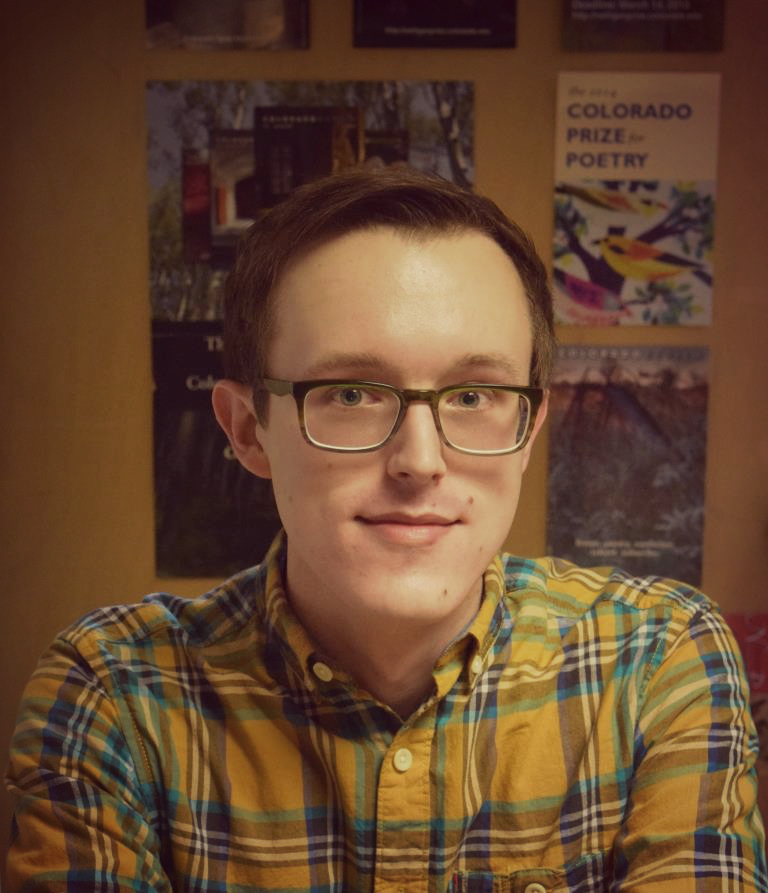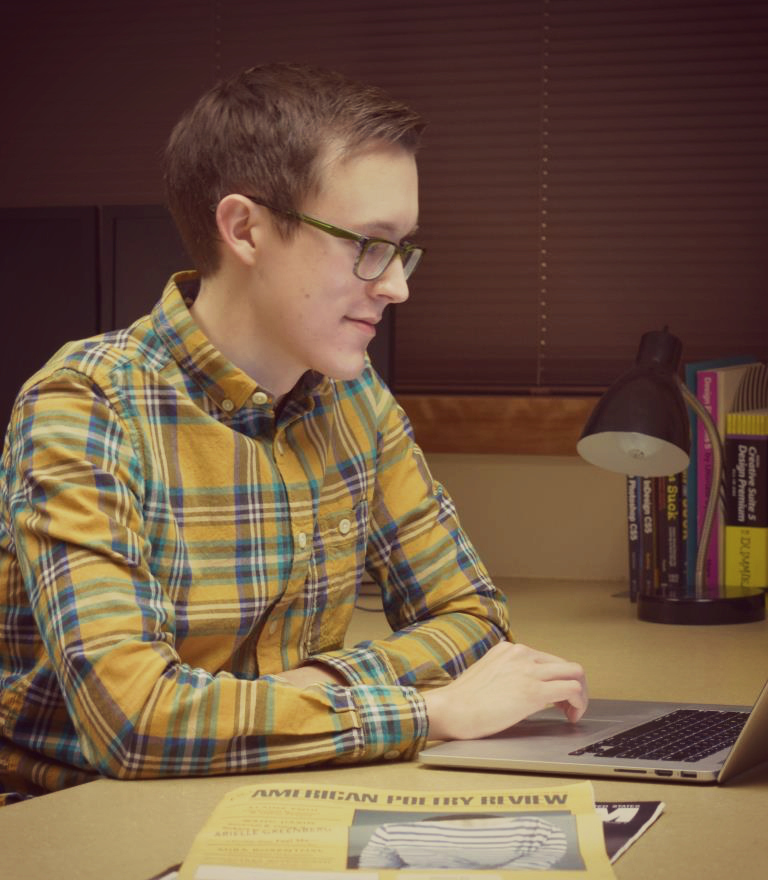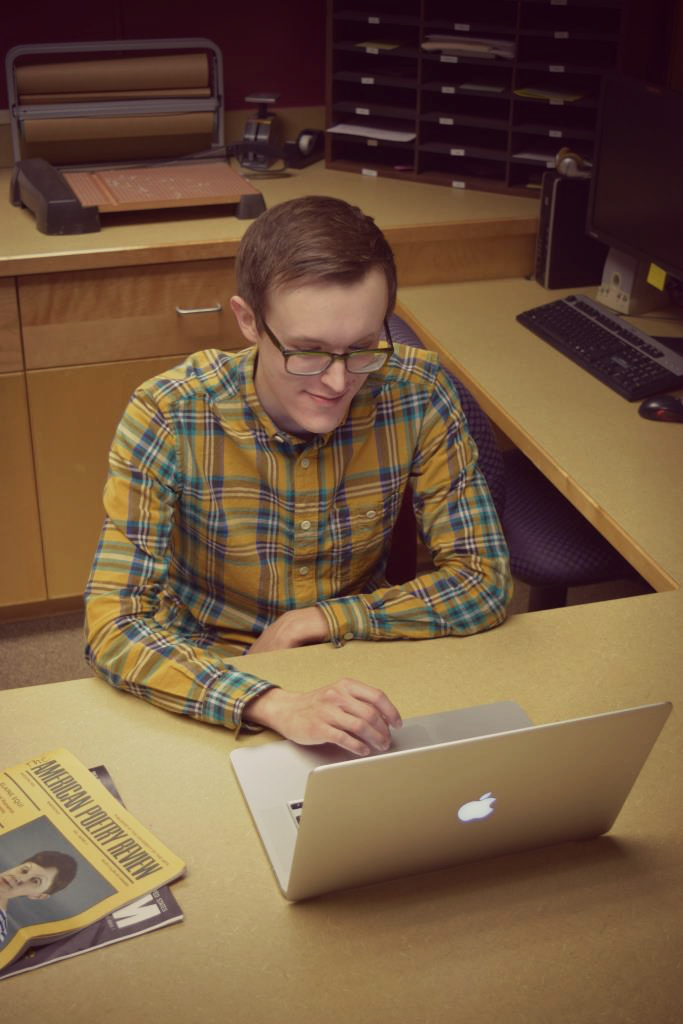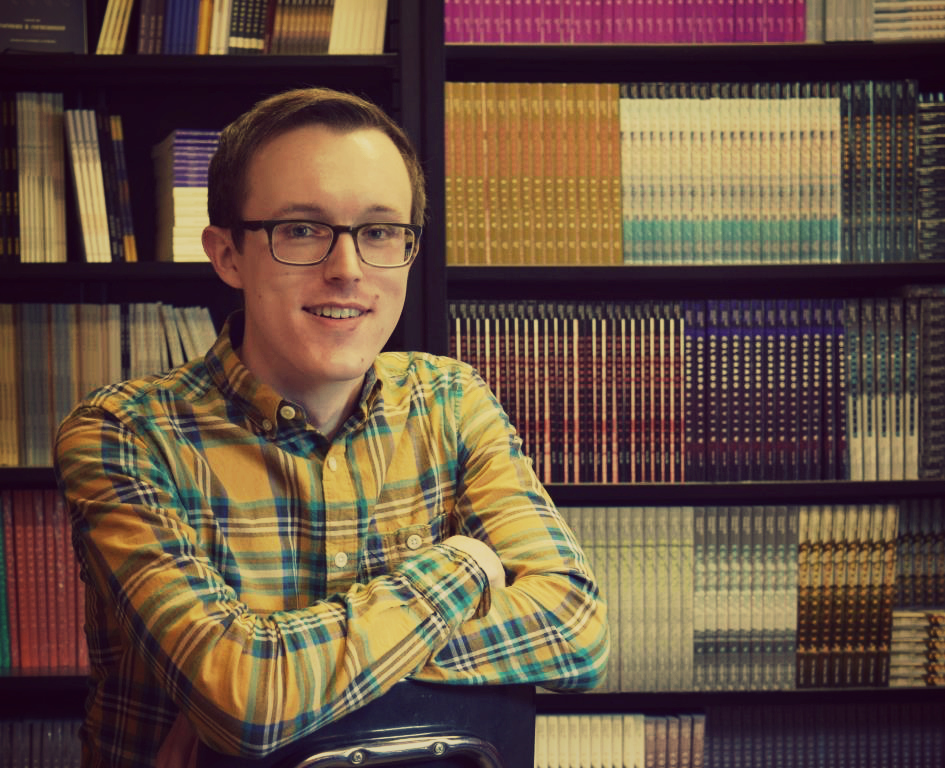Andrew Mangan
MFA Creative Writing: Fiction, 2nd year
Tell us a bit about yourself. Well, I’m from a small, St. Louis exurb called Festus. I served two years of college in Cape Girardeau, then enjoyed three at the University of Missouri–Columbia, from which I graduated in 2013 with a degree in English (emphasis in creative writing, fiction). I interned at The Missouri Review before CSU/Colorado Review. At any given moment, I’m probably eating a turkey sandwich.
How did you find out about the internship at the CLP? Via my boss at the Missouri Review (TMR), Evelyn Rogers; she first showed me an issue of Colorado Review (CR).
Why did you apply? I’d heard of the journal before Evelyn showed me a copy (CR had published David Foster Wallace, who I geeked out over in undergrad; here, let me quote to you from a poem he wrote in first-grade called “Vikings”…), but I hadn’t read an issue until then. It then became one of the main reasons I applied to CSU’s MFA—the chance to work there. I loved my time at TMR and wished to continue that at another blue-chip lit mag.
What did you expect before you started? Given my experience at TMR, I had somewhat known what I was getting into—slush-pile reading, proofing and copyediting manuscript.
How has it surprised you? That it’s an intensive yet holistic experience working there. In the early stages of the internship, Stephanie would walk me through my copyedits of a piece, pointing out smart calls I’d made, as well as grievous oversights; this helped hone my eye for grammatical/syntactical/semantical/etc. mistakes and ambiguities. One of the best developments: I’ve become a better sentence-level writer working there.
What’s a typical shift like, a “day in the life of an intern”? Most days for me are composed of reading through the either the “standard submission” queue or the Nelligan Prizes. A good number of days also involve copyediting and/or proofing pieces for the journal.
Where will we find you in five years? Still writing as I work at a literary journal, book publisher, or ad agency. Probably, I’ll be living in New York or Chicago, or some other Big City. (I look forward to stumbling upon this Q&A in five years and marveling at my old self’s naiveté and/or premonitory faculties. [Hey, future self: terribly sorry for all the mistakes me—past self—will make.])
How do you think this internship will help you in the future? It’ll help in the acquisition/retainment of the aforementioned job at a journal/publisher/ad house. Plus, it will aid in copyediting my own work, which will in turn sharpen its quality and clarity.
What advice do you have for students who want to apply to the internship? It’s not a huge time commitment, and you’ll learn a lot. So, it’s simple: do it. (Plus, once a year we have a meeting for which Stephanie buys pizza, and that’s cool.)
Favorite CLP memory? Working the AWP booth in Seattle with other interns. We gave out fortune cookies; people loved us.
Considering doing an internship in the fall? As the spring semester winds down it can difficult to think about anything but finishing up course work, completing finals, and the promise of summer break. Even so, students may find themselves considering internships for the fall semester. The Center for Literary Publishing (CLP) Internship Program is one option for graduate students. CLP interns serve as first and second readers for the nearly nine thousand manuscripts of fiction, poetry, and nonfiction that Colorado Review receives every year. Interns also have opportunities to copyedit, proofread, and typeset; learn about book & magazine design, production, and management; gain proficiency in current industry software (InDesign, PhotoShop, Illustrator, FileMaker, WordPress, and Submittable); participate in social media campaigns; and assist in grantwriting.



